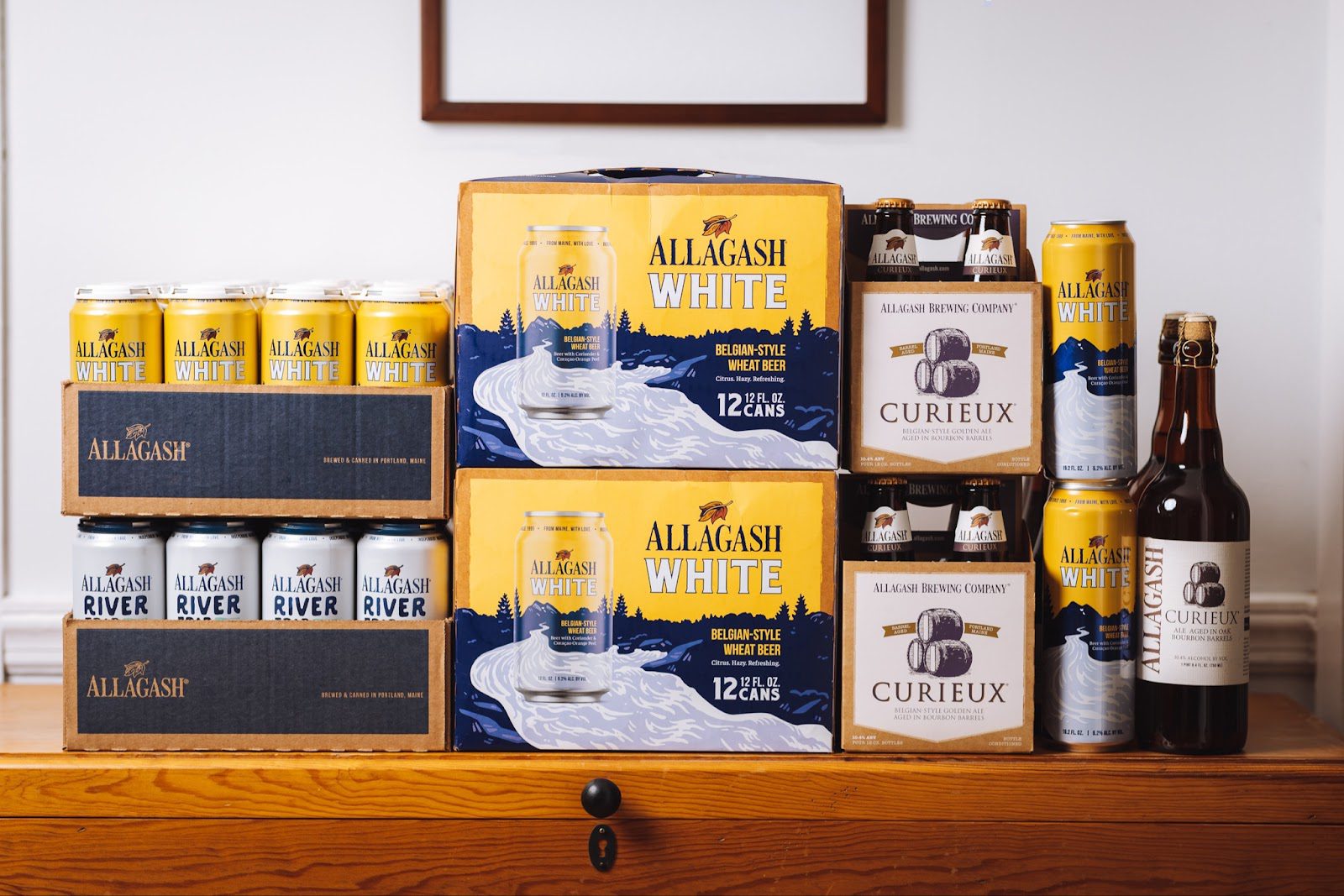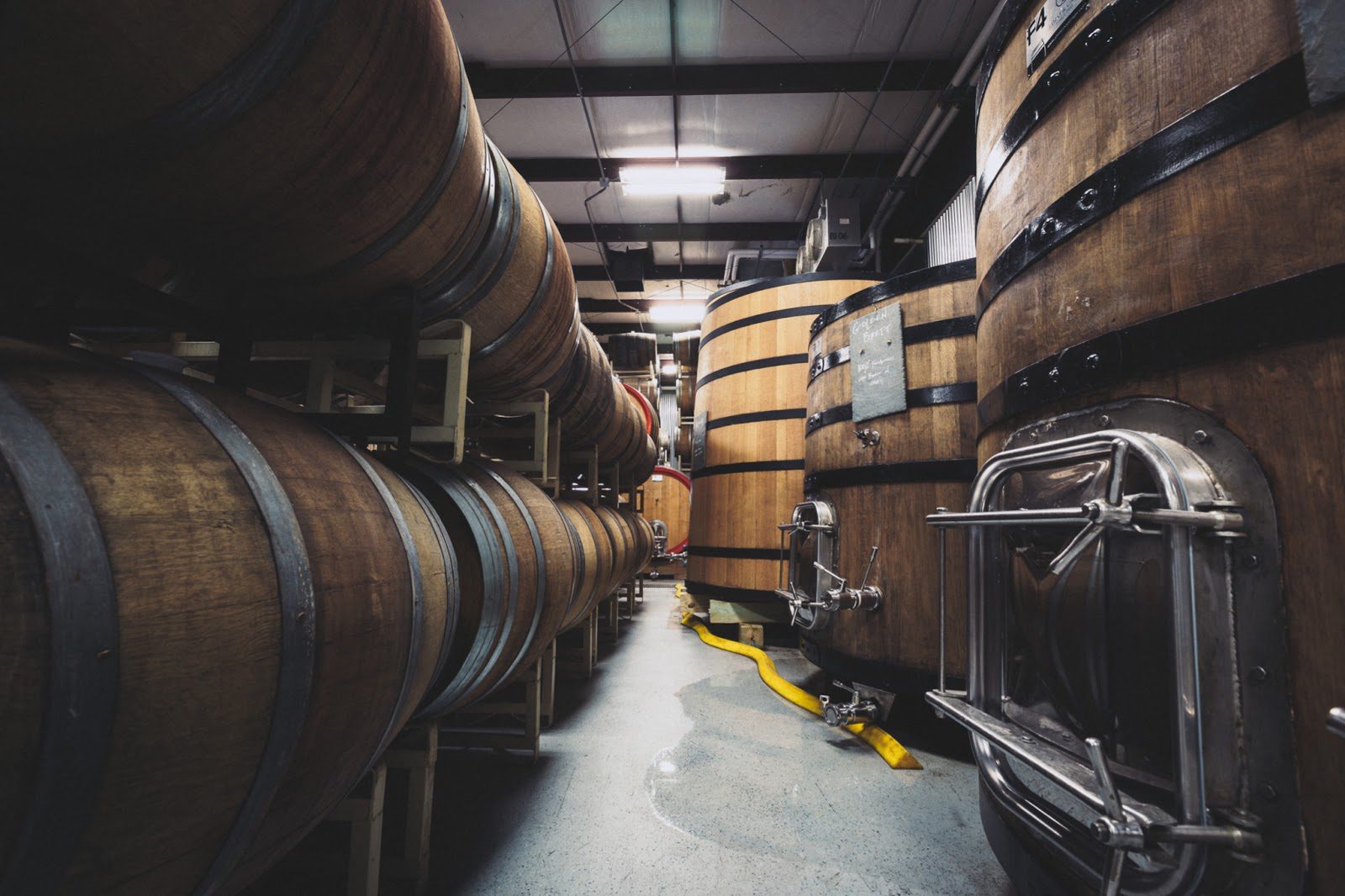The weather is finally warm enough to spend a Saturday at our favorite breweries sipping pints and savoring the breeze blowing over the patio or through the open windows. If you’re anything like me, this cold winter left a box of bottles, six-pack rings, and corks that you just don’t know where to recycle. Many small craft breweries face the same problem because industrial items like grain bags and shrink wrap aren’t easily recycled. Thankfully, Allagash Brewing Co. out of Portland, Maine is helping local breweries recycle and providing discounts to customers who bring in their own box of recyclables.
As one of the most sustainable breweries in the United States, Allagash has served its community for over 25 years. Recently, their Green Team decided to turn their Portland, Maine taproom into a customer recycling hub. Every bag of beer-related recyclables a customer brings in – think natural corks, brown packing paper, metal caps, and more – will earn that customer a digitally tracked “punch” on a frequent customer card. Once a customer has accumulated six punches, they receive a 20 percent discount on their next purchase. In addition to providing a path for these hard-to-recycle materials, Allagash is incentivizing responsible recycling. “We recognize that brewing is a resource-intensive process,” Jason Perkins, brewmaster and VP of brewing operations at Allagash Brewing, shared with Craft Brewing Business. “So, it’s our responsibility to constantly evolve our practices to reduce our environmental impact and offset where we can.”

Allagash is able to recycle or divert 99.8 percent of the waste they generate in their brewing operations, and they are hard at work to tackle the remaining 0.2 percent by partnering with other breweries to create the Allagash Recycling Co-op. Not only does the team at Allagash help customers recycle, but they are teaming up with their competitors to help ensure everyone can recycle. Breweries like the Maine Beer Company, Bissell Brothers Brewing, and Foundation Brewing Co. will bring their hard-to-recycle industrial brewing waste to the Allagash warehouse where the companies can make use of the established recycling network.
“By working with our local brewery friends and accumulating these necessary, yet hard-to-recycle, items in one place, we’re streamlining a critical part of the sustainability process,” Perkins continued. “We’re proud to put this program into place, and look forward to welcoming many partners both inside and outside the brewing industry. The more action we can take collectively, the better.”
Materials like grain bags, pallet wrap, and metal cages aren’t accepted through traditional recycling streams, so the Recycling Co-op will pool their waste until it is the appropriate size to go to an industrial recycling facility. In North Carolina, Sierra Nevada operates a similar recycling cooperative, and Bell’s Brewing, in Michigan, is currently building a recycling cooperative of their own. Cooperation in the craft beer industry is becoming increasingly common, whether it’s for the benefit of the customer or for the good of craft beer, but when more waste is recycled, it’s good for the planet and good for everyone.






